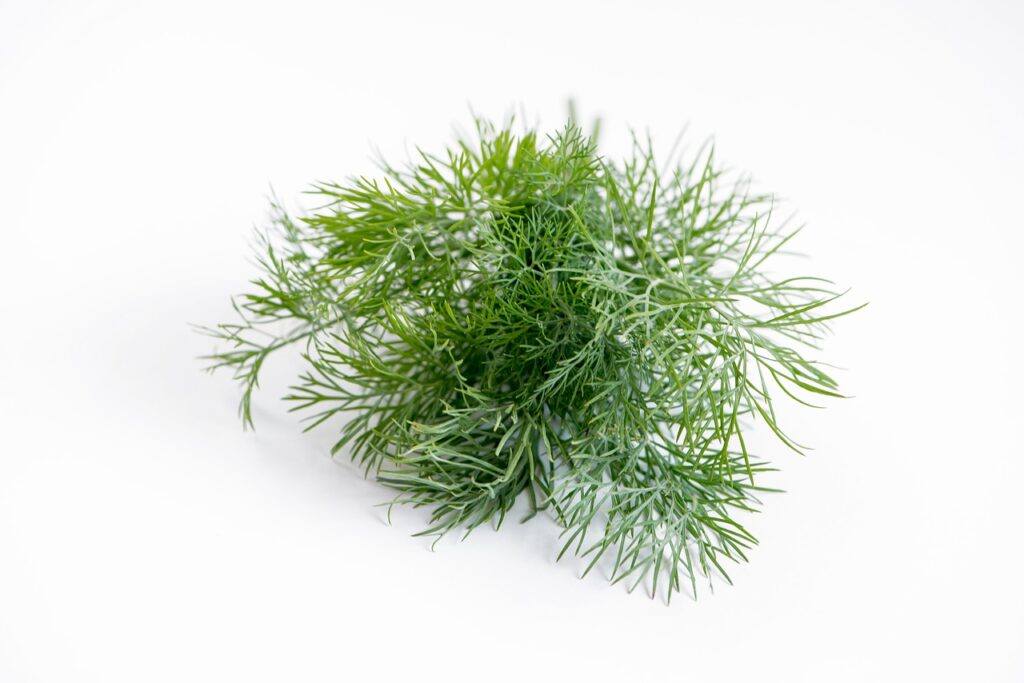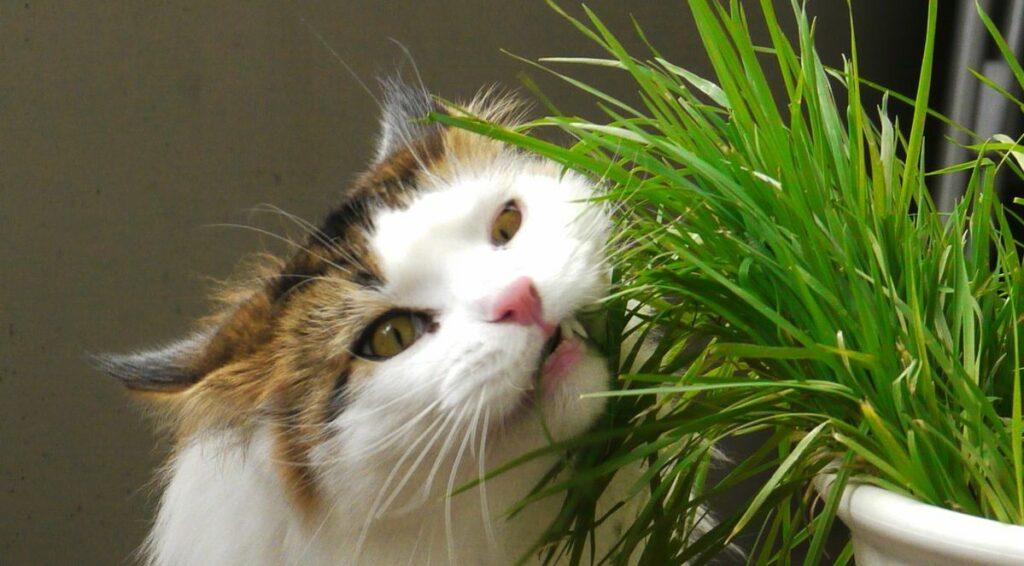This post may contain affiliate links. This means I may receive a small commission if products are purchased through them. All opinions are honest and remain my own.

If you like to grow your own herbs at home, or you’re curious what seasonings are appropriate for home-made cat food, you may find yourself asking can cats eat dill weed? After all, there are many spices and herbs that are unsafe for cat consumption, so you can never be too careful when it comes to your fur babies.
Is dill toxic to cats?
No, dill is not a poisonous plant for cats. According to this complete list from the ASPCA, it’s listed under “Plants Non-Toxic to Cats”. It’s safe for your cats to nibble and consume and shouldn’t cause any ill effects. To be absolutely safe, avoid giving them any dill essential oil.
Dill weed, scientifically named Anethum graveolens, is an extremely popular herb used around the world. Many people grow their own dill at home, and it can be used to add a unique flavor to certain dishes.
It’s certainly one of my favorites! Yum!
Benefits of Dill
Dill contains vitamins and minerals like vitamin A, vitamin C, Iron, and even magnesium. The amounts differ based on if it’s dried or fresh, however, in order to get the full nutritional benefit you’d need to eat A LOT of dill, much more than most anyone would probably use to season a dish.
However, in either case, cats don’t derive their nutrition from plants as they’re obligate carnivores. They’re designed to eat and thrive off meat.
The truth is, cats digestive systems aren’t designed the same as ours, and they don’t necessarily get the same nutritional benefit out of plant foods that we do. Often times their body does not digest it properly, and nutrients are not absorbed.
You may notice that your cat will throw up after she eats plant matter – this is a way of their bodies rejecting material it can’t handle. This is why it’s important not to feed cats a vegetarian or vegan diet as often times cats will end up with severe malnutrition.
While it’s OK if your cat chews on some dill weed, it shouldn’t be used as a major part of their diet.
Medical uses
In humans, dill is used by some to treat all sorts of ailments from UTIs, digestive disorders, kidney disease, cough, fever, colds, and many others.
However, there is no real conclusive evidence that dill actually works to treat any of these things. It’s basically just alternative medicine.
It is also suggested that dill weed may have a diuretic (“water pill”) effect and increase urination, but there are also no hard studies backing this up.
So if your cat is sick with anything such as a cold, UTI or kidney infection, do not try to use dill as a cure. It is always recommended to take them to the vet. They’ll be able to properly diagnose and offer the right treatment.
What forms of dill are safe for cats?
Fresh dill and the dried form are both safe for cats to eat, but expert opinions on essential oils differ. Since it’s so concentrated, it’s probably best to avoid giving any dill essential oil to your cat.
The only part of dill that could pose a risk to your cat is the hard inner stem, as it’s very difficult to chew. It’s possible (but unlikely) your cat could choke on it.
Can cats eat dill pickles?
While dill pickles are not dangerous for your cat to eat, avoid feeding it to them regularly as they also contain salt and sugar, neither of which are great for your cat’s diet.
These popular seasoning herbs are safe to grow around cats
This list is NOT all inclusive, but these herbs, in addition to dill, are common for people to grow for use in their kitchen and are deemed “non-toxic” to cats.
- Basil
- Cinnamon
- Cilantro
- Fennel
- Sage
- Thyme
You do not have to worry about planting these in your garden or growing them in your house if you have cats around. If they accidentally start snacking on it, it shouldn’t be a big deal.
However, keep in mind that moderation is KEY and eating too much of anything could cause problems with some cats.
These popular herbs are NOT safe for your cat to eat
Avoid growing these herbs around your cat, as they are considered toxic and can make them sick. (Again, this is NOT a complete list!)
- Mint
- Oregano
- Tarragon
- Parsely
- Onion
- Chives
- Garlic
Onion, chives, and garlic are all in the same family and can be exceptionally harmful to felines. One small glove of garlic is enough to cause ill effects in a cat. Use caution and make sure to keep them away from your cat, as well as leave them out of their food.
Check out this page from the ASPCA (American Society for the Prevention of Cruelty to Animals) for a more complete list of toxic and non-toxic plants.
Alternative plants to grow for your cat (to keep them safe and occupied)

Regardless of if herbs are toxic or not, you probably don’t want your cats to eat them. If you’re looking for an alternative to keep them occupied, try growing some fresh catnip or cat grass and put it in an easy-access location. Hopefully, it’ll distract them enough that they’re no longer interested in trying to eat your fresh herbs!
The Bottom Line – Moderation is key
While it’s safe and technically non-toxic for your cat to consume dill and other herbs, you should always keep in mind moderation is important. While a cat is unlikely to “overdose” in the wild if they stumble upon some herbs or plants in your garden, make sure you don’t purposely feed them too much of any herb, which could cause side effects in cats, including digestive issues.

Leave a Reply